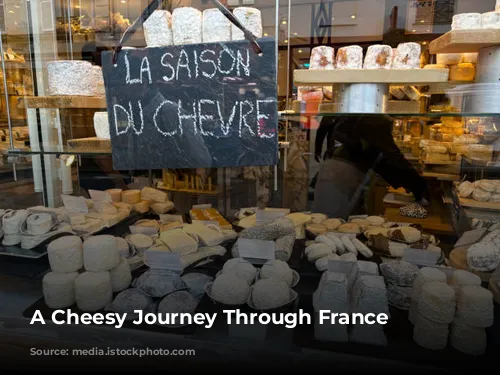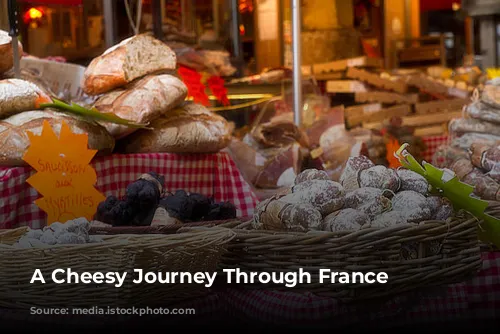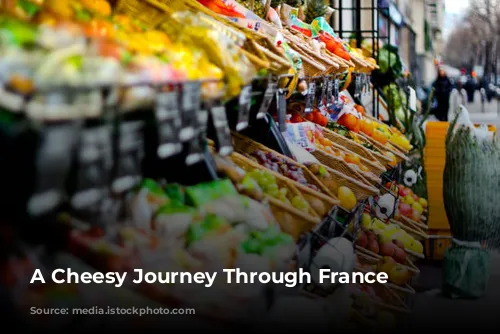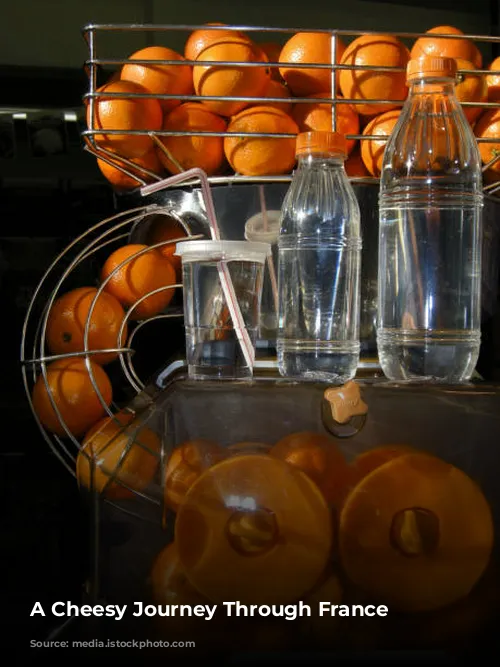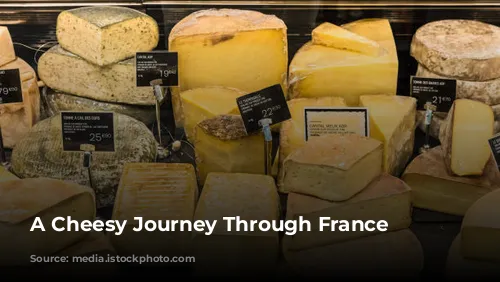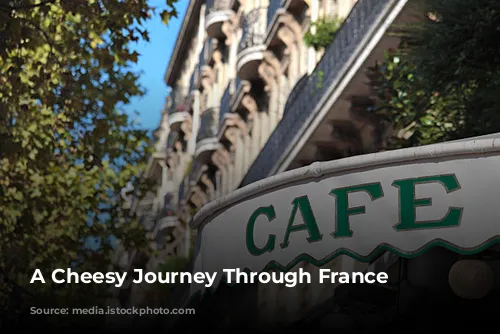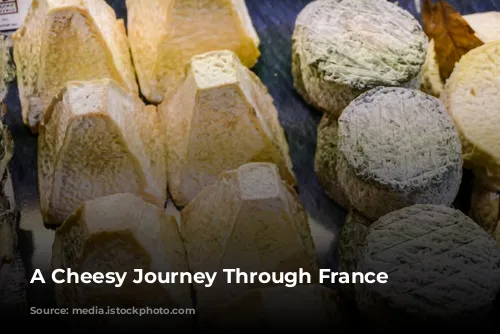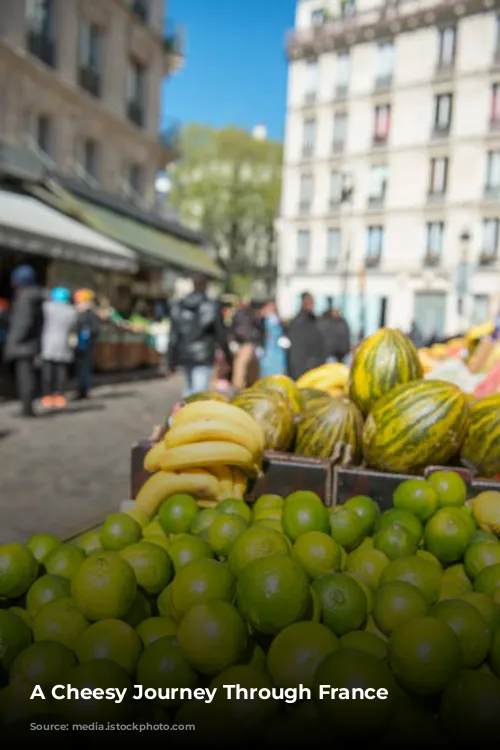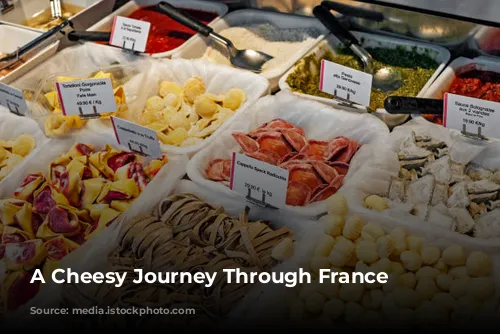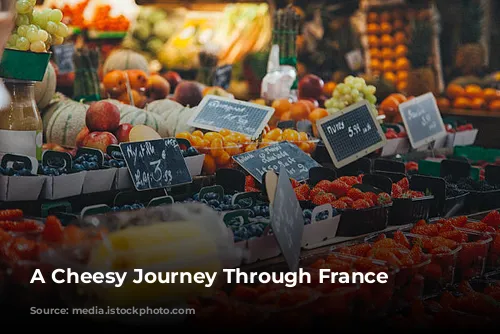“How can you govern a country which has 246 varieties of cheese?” This famous quote, uttered by French President Charles de Gaulle in 1962, perfectly encapsulates the French passion for cheese. With nearly 400 distinct varieties today, cheese has become an integral part of French culture, a source of regional pride, and a national pastime. Just like with wine, many cheeses hold the coveted AOC (Appellation d’origine contrôlée) designation, ensuring their origin and production adhere to strict regulations. Roquefort, for example, can only come from the town of Roquefort and must meet specific criteria to be considered authentic.
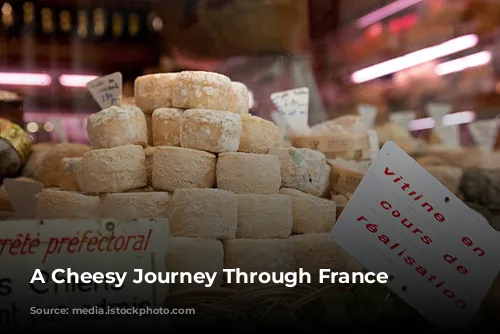
A Guide to Some of France’s Most Iconic Cheeses
Cheese in France is as diverse as its landscapes, and while the love for pungent cheese might seem inherent to the French, it’s often an acquired taste. So, on your next Parisian escapade, venture beyond the familiar Brie and embark on a journey of bold flavors by sampling some of these stinky and wonderful cheeses.
The Creamy and Smokey Langres
Made in the Champagne region, the Langres is a cylindrical cheese with a concave top perfect for holding a bit of bubbly. Its wrinkly rind conceals a dense and creamy interior that’s both soft and slightly crumbly. The flavor starts fresh and grassy, evolving into a delightful smokiness. Aged for five weeks, Langres is best enjoyed between May and August, proving that even cheese in France has a season. Pair this smoky delight with rosé champagne, whose strawberry notes complement the cheese beautifully.
The Earthy and Aromatic Pont l’Évêque
Pont l’Évêque, a semi-hard cheese crafted from uncooked and unpressed cow’s milk, is one of France’s oldest cheeses, hailing from Normandy since the 12th century. Its moist crust gives off a pungent aroma, but the cheese inside boasts a creamy texture with a mild and earthy flavor. With its own AOC since 1976, Pont l’Évêque graces the table in spring, summer, and fall. Experience its full potential by pairing it with regional Norman cider or calvados.
The Nutty and Complex Trou du Cru
From the Burgundy region, the Trou du Cru, made with pasteurized cow’s milk, is a smooth and creamy cheese with a complex, nutty flavor and a sharp aftertaste. These small, molded rounds mature more quickly than their relative, Époisses de Bourgogne, and each cheese is smear ripened, or washed individually with Marc de Bourgogne, a strong local brandy, resulting in a slightly alcoholic and hay-like aroma. Trou du Cru pairs well with Bourgogne white wines, like Meursault, which offer toasted and vanilla notes that complement the cheese’s complexity.
The Bold and Powerful Époisses de Bourgogne
Époisses de Bourgogne, a soft cheese so smelly it’s been banned from some public transportation in France, was a favorite of Napoleon. This distinctive red-orange cheese hails from the village of Époisses, nestled between Dijon and Auxerre. After nearly disappearing during the World Wars, Époisses was resurrected by French farmers in the 1950s, and today, Fromagerie Berthaut produces nearly all of it. This unpasteurized cow’s milk cheese is smear ripened, like Trou du Cru, and has a chewy texture with a salty, sweet, and slightly spicy flavor. Its intensity demands a hearty beverage like Trappist beer to stand up to its boldness.
The Pungent and Savory French Munster
Forget the mild American muenster cheese. The French Munster is a strong-tasting, semi-soft cheese from the Alsatian town of Munster, made primarily with milk from cows grazing in the Vosges Mountains. Aged for five weeks to three months in damp cellars, depending on its size, it has a pungent aroma (some say it smells like sweaty feet) and a tangy rind, periodically rinsed with brine. The cheese itself boasts a savory and salty flavor that pairs beautifully with Alsatian whites, like dry Riesling.
The Legendary and Complex Roquefort
The King of French cheeses, Roquefort, was the first recipient of an AOC in France in 1925, though its history likely goes much further back. It’s been mentioned in literature as far back as 79 AD. This sheep’s milk blue cheese hails from the south of France and, to earn the name Roquefort, it must be ripened in the natural caves of Mont Combalou in Roquefort-sur-Soulzon. Roquefort is tangy and crumbly, with veins of green mold and a flavor that is both sweet, smoky, and salty. Its bold flavor needs a powerful companion, like a full-bodied, well-balanced red wine, like Bordeaux, but if white is your preference, opt for a minerally Sancerre.
The Earthy and Sweet Maroilles
The Maroilles, a cow’s milk cheese from northern France, has a funky, barnyard-like aroma, but its flavor is surprisingly mild with a touch of sweetness. Invented in the 10th century by a monk, Maroilles was reportedly the favorite cheese of several French Kings, including Phillip II and Francis I. Its sweet nature calls for a complementary pairing, like cider or late-harvest Gewürztraminer.
The Intense and Flavorful Vieux Lille
Vieux Lille, a ripened version of Maroilles, is often called the most pungent cheese in France, earning the nickname “old stinker.” This semi-soft cheese is soaked in brine for three months, giving it a salty taste. While the aroma is undoubtedly strong, the flavor is surprisingly nuanced and well-balanced. Spicy and salty with a lingering nutty aftertaste, Vieux Lille is readily available during the winter months and pairs beautifully with red Burgundy or champagne.
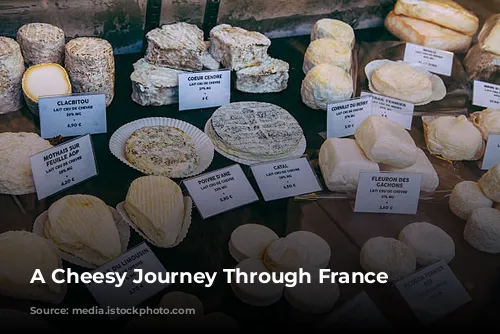
A Culinary Adventure Awaits
So, dive into the world of French cheese and experience the rich tapestry of flavors and aromas that make these cheeses truly remarkable. Don’t be afraid to explore beyond the familiar and discover your own favorite cheesy treasures in the heart of France. You might be surprised at what you find.


